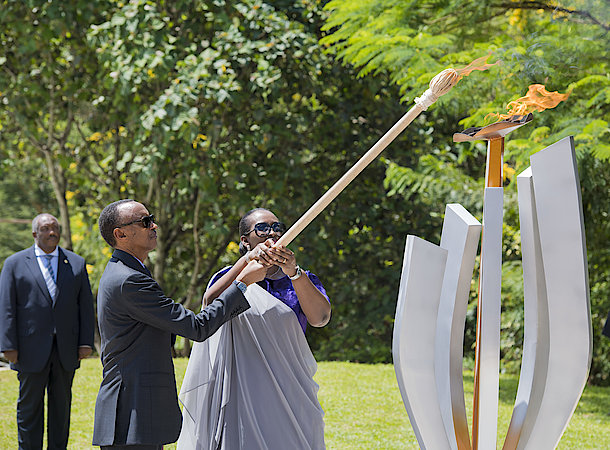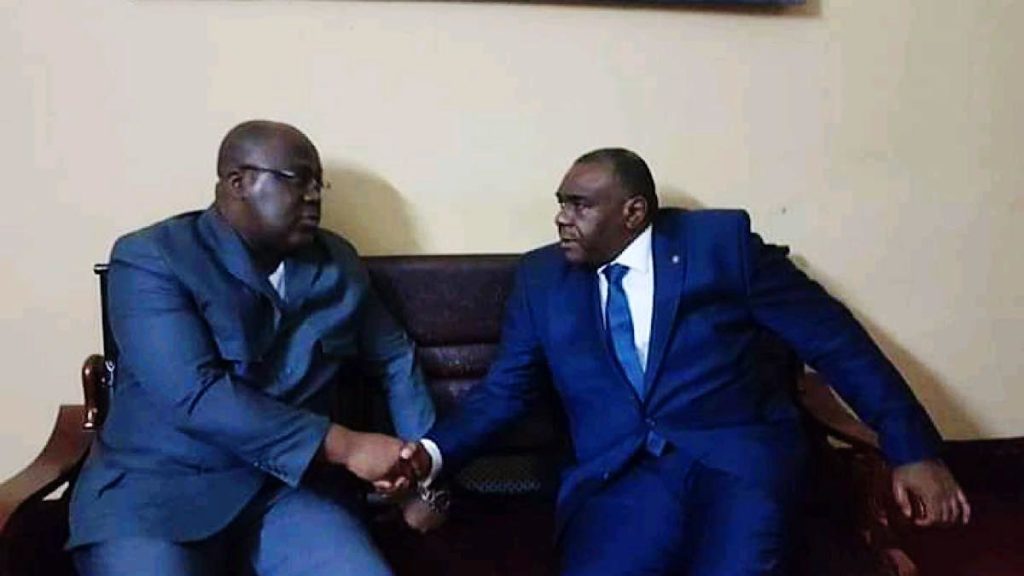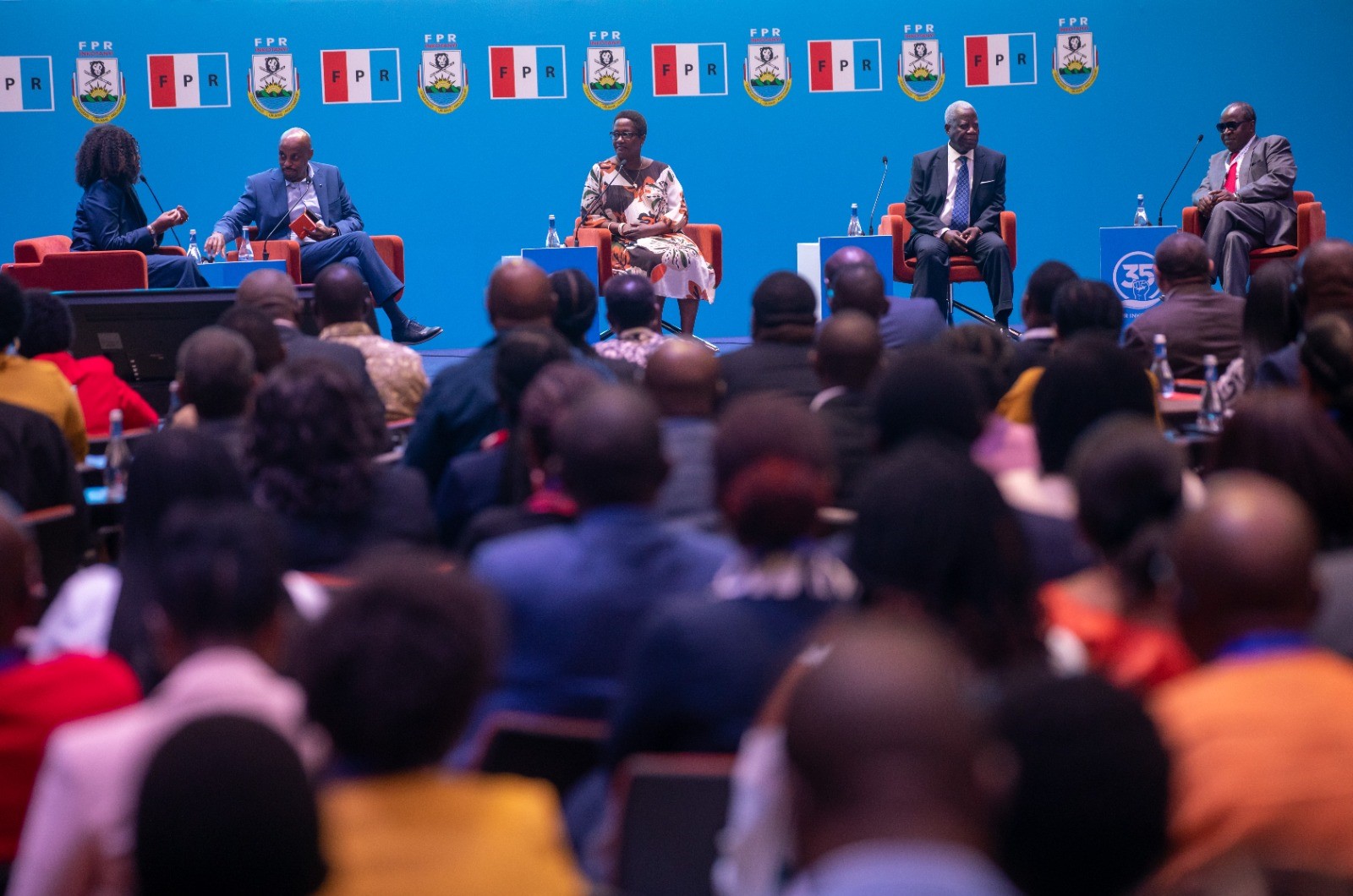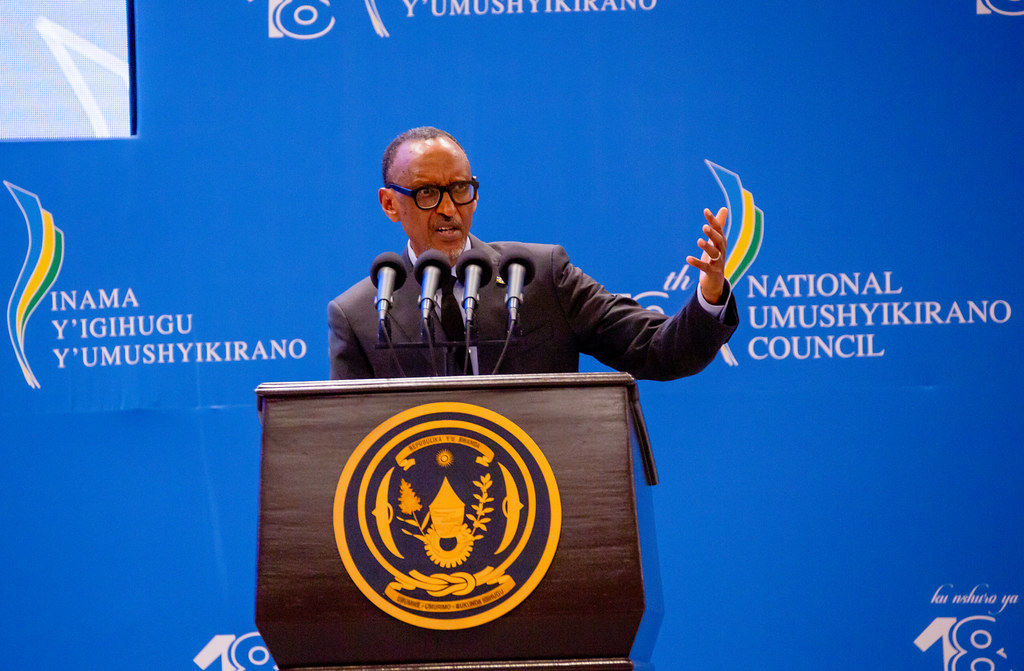Regional
April 7: A Day of reflection on Genocide against the Tutsi

On
April 7, 1994, Rwanda‘s former government executed its long-planned
extermination of the Tutsi. More than a million people were murdered within 100
days.
The
army, Interahamwe and Impuzamugambi militias as well as the presidential guard
units began to set up roadblocks in many parts of Kigali, killing Tutsi
especially in the localities of Kacyiru and Kimihurura.
The
massacres quickly spread all over the country, supervised by government
officials such as ministers, prefects, burgomasters, municipal councilors, top army
officers and the gendarmerie personnel.
The
Genocide against the Tutsi was neither an accident nor a result of President
Juvénal Habyarimana’s plane crash. It was the implementation of a long-term
plan prepared from previous decades.
Col Théoneste
Bagosora, one of the masterminds of the Genocide, was among Rwanda's envoys in
Arusha, Tanzania, during a meeting that ratified a part of the peace agreement
on power-sharing in January 1993. He did not accept the outcome, but rather openly
said, in anger: “I am returning home to prepare the apocalypse”.
The
“apocalypse” he meant was the extermination of Tutsi in Rwanda.
Habyarimana
had, in 1991, launched the “auto-defense civile” operation aimed at selecting and
militarily training capable Hutu youths to be ready to carry out mass ‘anti-enemy’
killings in the future.
A
document published secretly, on September 21, 1992, defined the enemy as a
Tutsi inside the country or abroad who has never accepted the 1959 revolution
and anyone who gives him any help.
The
‘enemy’ was to be looked for in Tutsi refugees, Ugandan troops, the Tutsi
inside the country, foreign men who married Tutsi women, Hutu who were not
satisfied with the regime, and foreigners of the same origin with Tutsi.
Politicians
contributed more to the execution of the Genocide through inciting hate speech
and mobilizing the Hutu to kill Tutsi indiscriminately. The MRND ruling party
created Interahamwe militia and CDR party formed Impuzamugambi militia in preparation
for wiping out the Tutsi completely.
More
efforts were put in killing politicians who did not support Habyarimana's
government and the Genocide plot.
On
April 7, 1994, the Prime Minister, Agathe Uwilingiyimana, the President of the
Constitutional Court, Joseph Kavaruganda, the former President of PSD party, Frédéric
Nzamurambaho, the former vice president of PSD party, Félicien Ngango, the
former Minister of information and member of the non-extremist trend of the MDR
Party Faustin Rucogoza as well as Landouard Ndasingwa of PL Party were
assassinated.
The
same date, 10 Belgian peacekeepers from the Para commando Brigade, who were
protecting Uwilingiyimana, were executed. Maj Aloys Ntabakuze, commander of the
para commando battalion installed at the Kanombe military camp, ordered the
killing of Tutsi and the members of the opposition living near the camp. Dozens
of Tutsi were killed at the Christus Jesuit Center in Remera.
The
massacres went nationwide mainly in Gisenyi, Kibungo, Gitarama, Cyangugu,
Gikongoro and Ruhengeri prefectures.
The
international community stood by despite different warnings of the Genocide
even before April 7, 1994. Genocide ideology was indoctrinated for long in both
youth and adults.
The
then UN mission in Rwanda, UNAMIR, did nothing to halt the killings. The RPF’s military wing, RPA, was the single
force that struggled to stop the Genocide.
On
January 26, 2018, the UN adopted a decision of designating April 7 as the international
day of reflection on the 1994 Genocide against the Tutsi in Rwanda.
Every
year, for a period of 100 days, starting from April 7, commemoration activities
are held under the theme, “Remember-Unite-Renew,” as a solemn occasion to
remember the lives lost, show solidarity with the victims and survivors, unite,
and renew efforts to ensure that such a tragedy never happens again in Rwanda
or elsewhere in the world.







